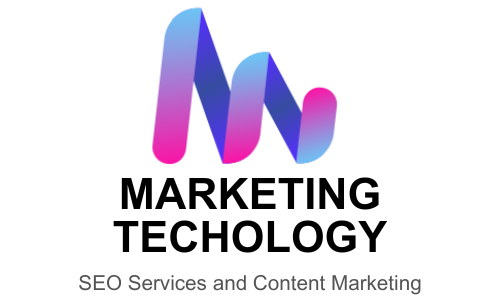Artificial Intelligence (AI) has become one of the most transformative technologies of our time, and by 2025, its impact on business operations will be undeniable. AI, which enables machines to mimic human intelligence, has already redefined industries by streamlining processes, improving efficiency, and driving innovation. As we look toward 2025, the integration of AI into businesses is set to reach new heights, offering unparalleled advantages that were once only imaginable.
The benefits of artificial intelligence in business extend beyond automation. AI is enabling organizations to make smarter decisions, personalize customer experiences, and optimize operations in ways that were previously unattainable. These advancements are not confined to large corporations; small and medium-sized enterprises (SMEs) are also harnessing AI’s potential to stay competitive in an increasingly digital world.
This article explores the 15 most significant benefits of AI in business in 2025, providing insights into how organizations can leverage these advancements to achieve sustainable growth and success.
Introduction to AI in Business: Why 2025 is a Turning Point
The year 2025 marks a pivotal moment in the adoption of artificial intelligence across industries. Several key factors contribute to why this year stands out:
- Technological Advancements: AI technologies, including machine learning, natural language processing (NLP), and computer vision, have matured significantly, making them more accessible and effective for businesses.
- Explosion of Data: The digital era has brought an overwhelming amount of data. AI enables businesses to process, analyze, and derive actionable insights from this data at an unprecedented scale.
- Affordability of AI Solutions: With advancements in technology, AI tools and platforms have become more cost-effective, allowing businesses of all sizes to benefit from them.
- Increased Market Competition: The global marketplace is more competitive than ever, pushing businesses to adopt AI to innovate and maintain an edge.
- Widespread Application Across Industries: AI is no longer confined to tech companies. It is being embraced by sectors such as healthcare, retail, finance, logistics, and even agriculture.
By 2025, businesses that have embraced AI will not only improve their operational efficiency but also create value-driven strategies that set them apart in the global market.

15 Benefits of Artificial Intelligence in Business in 2025
1. Enhanced Decision-Making
AI systems analyze vast amounts of data quickly and accurately, providing businesses with valuable insights. These insights help decision-makers identify trends, predict outcomes, and develop effective strategies, reducing the risk of human error and improving overall business outcomes.
2. Streamlined Operations Through Automation
AI-powered automation handles repetitive and time-consuming tasks, such as data entry, inventory management, and report generation. This frees up employees to focus on higher-value tasks that require creativity and strategic thinking.
3. Personalized Customer Experiences
AI analyzes customer data to deliver personalized recommendations, promotions, and experiences. This not only boosts customer satisfaction but also drives loyalty and repeat business.
4. Improved Customer Support
AI chatbots and virtual assistants provide instant, 24/7 customer support, handling inquiries and resolving issues efficiently. This reduces wait times and enhances the overall customer experience.
5. Cost Optimization
AI helps businesses reduce costs through automation, efficient resource allocation, and predictive maintenance. By minimizing waste and downtime, companies can achieve significant savings.
6. Strengthened Cybersecurity
AI detects and responds to cybersecurity threats in real-time, safeguarding sensitive business and customer data. Machine learning algorithms continuously adapt to new threats, providing robust protection against cyberattacks.

7. Optimized Supply Chain Management
AI streamlines supply chain operations by predicting demand, tracking inventory, and optimizing delivery routes. This ensures timely and cost-effective operations, reducing delays and inefficiencies.
8. Talent Acquisition and Management
AI simplifies recruitment by screening resumes, identifying qualified candidates, and predicting employee performance. Additionally, AI-powered tools help businesses manage employee engagement and retention.
9. Predictive Maintenance
For businesses reliant on machinery and equipment, AI predicts potential issues before they occur, enabling timely repairs and reducing costly downtime.
10. Accelerated Product Development
AI analyzes market trends and consumer preferences to identify opportunities for innovation. This enables businesses to develop and launch new products faster, staying ahead of competitors.

11. Enhanced Marketing Strategies
AI-driven tools optimize marketing efforts by analyzing consumer behavior, identifying target audiences, and personalizing campaigns. This maximizes ROI and drives brand growth.
12. Sustainability and Green Initiatives
AI supports sustainable business practices by optimizing energy consumption, reducing waste, and enabling efficient resource management. Businesses can align with environmental goals while improving operational efficiency.
13. Scalability and Growth
AI solutions are inherently scalable, allowing businesses to expand operations without significantly increasing costs or workforce requirements. This makes growth more attainable.
14. Competitive Advantage
Organizations that adopt AI early gain a competitive edge by offering innovative solutions, improving customer experiences, and adapting quickly to market changes.

15. Improved Risk Management
AI identifies potential risks in financial transactions, compliance, and operational processes. By providing early warnings, businesses can take proactive measures to mitigate risks effectively.
Conclusion
The benefits of artificial intelligence in business are vast and transformative, positioning AI as a cornerstone of modern business strategy. By 2025, AI will not only enhance operational efficiency but also redefine how businesses innovate, interact with customers, and achieve their goals.
As AI continues to evolve, its potential to drive growth, foster innovation, and create sustainable practices will only increase. Businesses that embrace AI today are setting themselves up for a future of success and resilience.
At Marketing Technology, we understand the challenges and opportunities presented by emerging technologies. We specialize in SEO services and content marketing, helping businesses leverage the power of AI to create impactful and sustainable strategies. Partner with us to navigate the future of business innovation with confidence.

Frequently Asked Questions
What are the key benefits of artificial intelligence in business?
AI offers numerous benefits, including improved decision-making, streamlined operations, personalized customer experiences, and enhanced cybersecurity.
How can AI help small businesses?
AI tools provide small businesses with affordable solutions for automation, marketing, and data analysis, enabling them to compete effectively with larger organizations.
Will AI replace human jobs?
While AI may automate some tasks, it also creates new opportunities for innovation, collaboration, and strategic roles that require human input and creativity.
By integrating AI into their operations, businesses can unlock unparalleled growth and efficiency, ensuring their relevance and success in 2025 and beyond.





